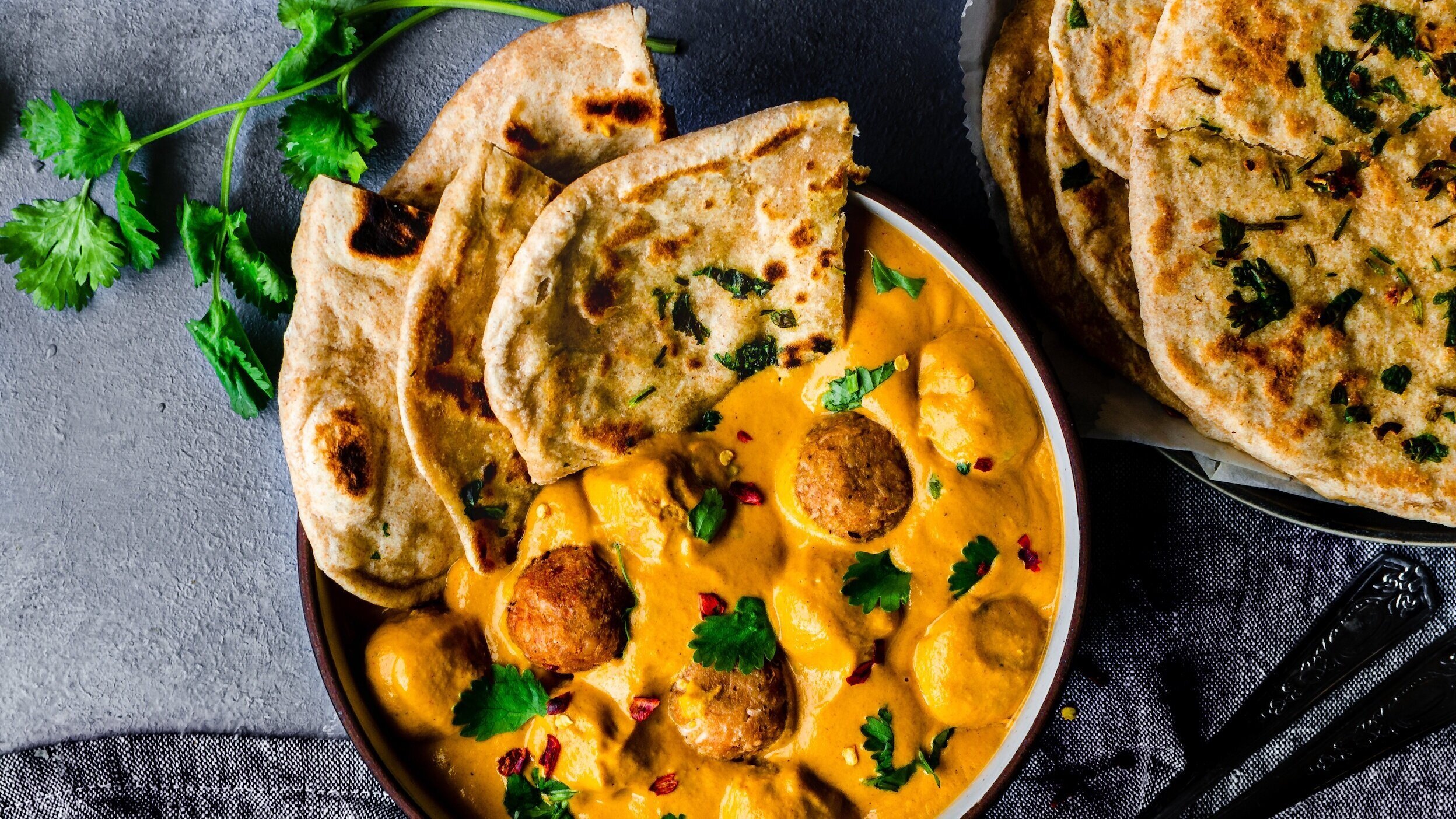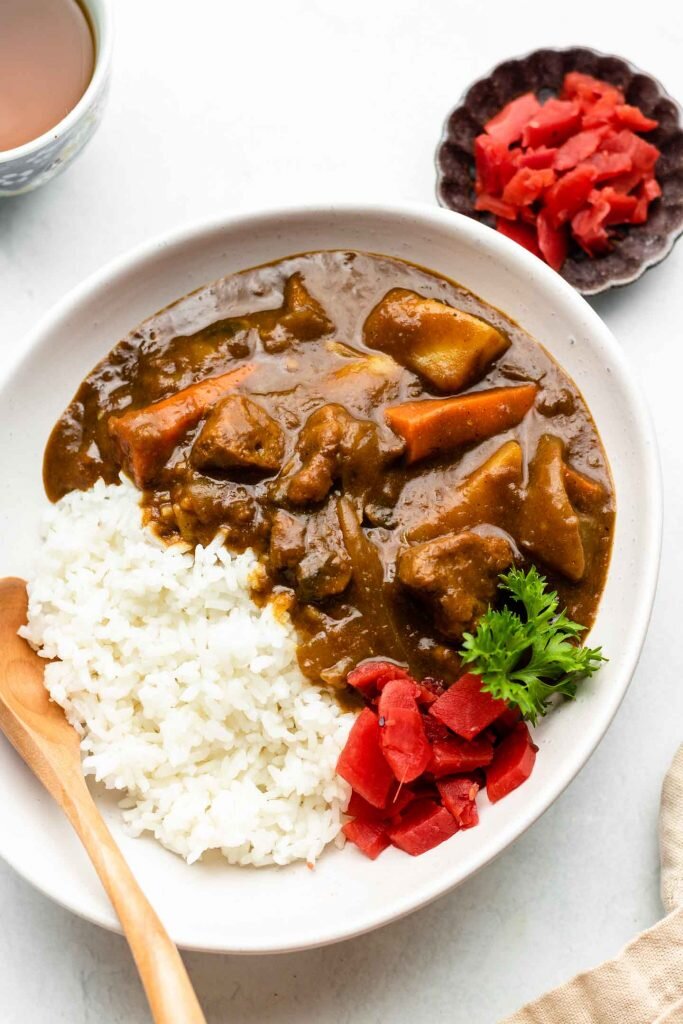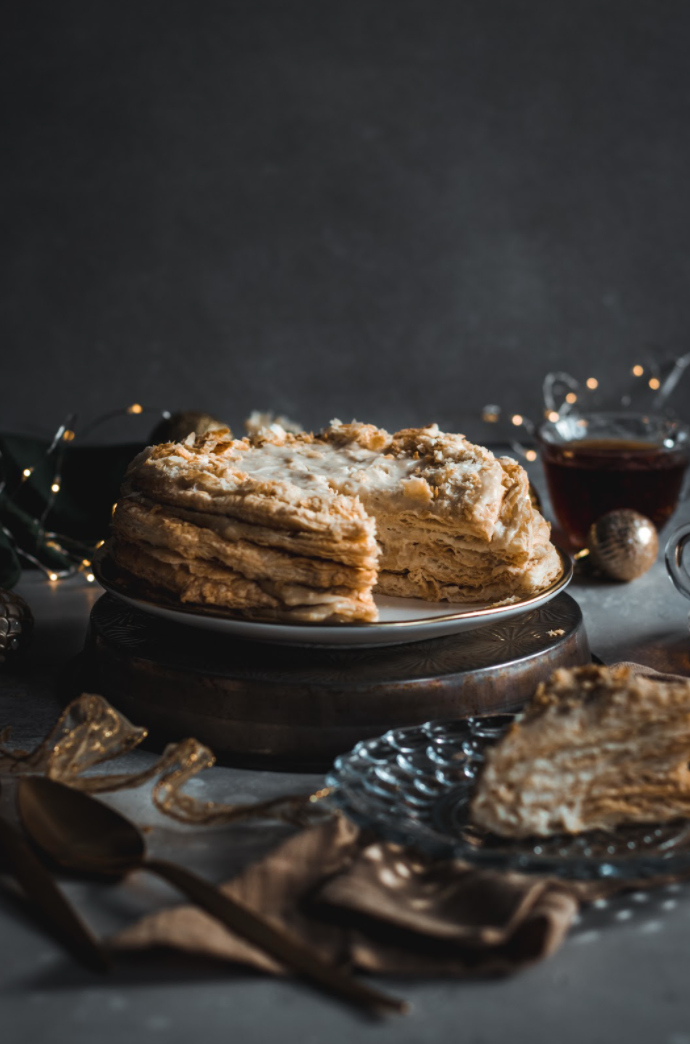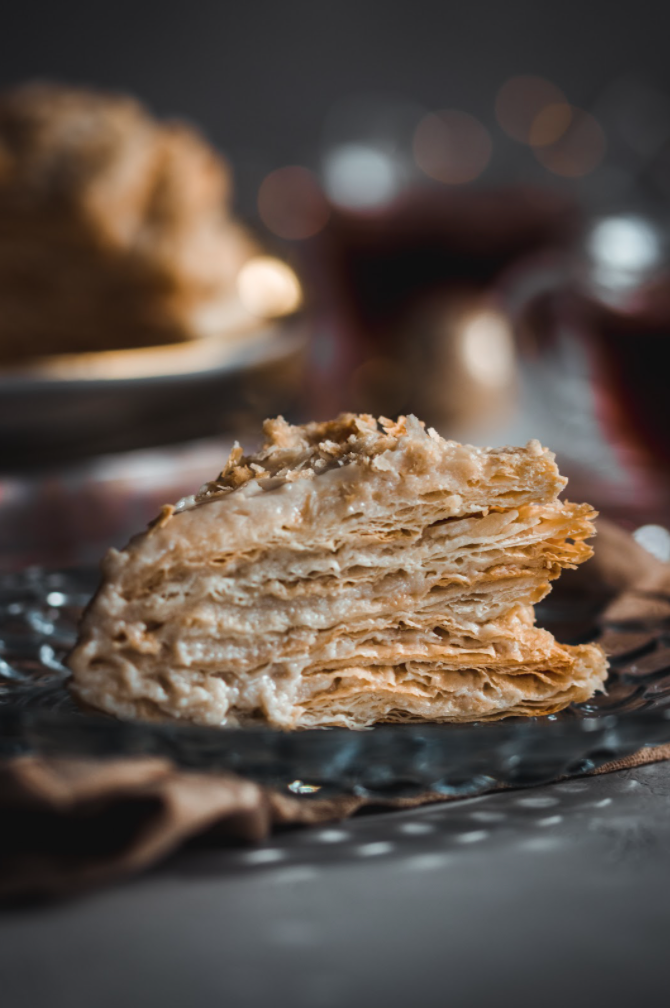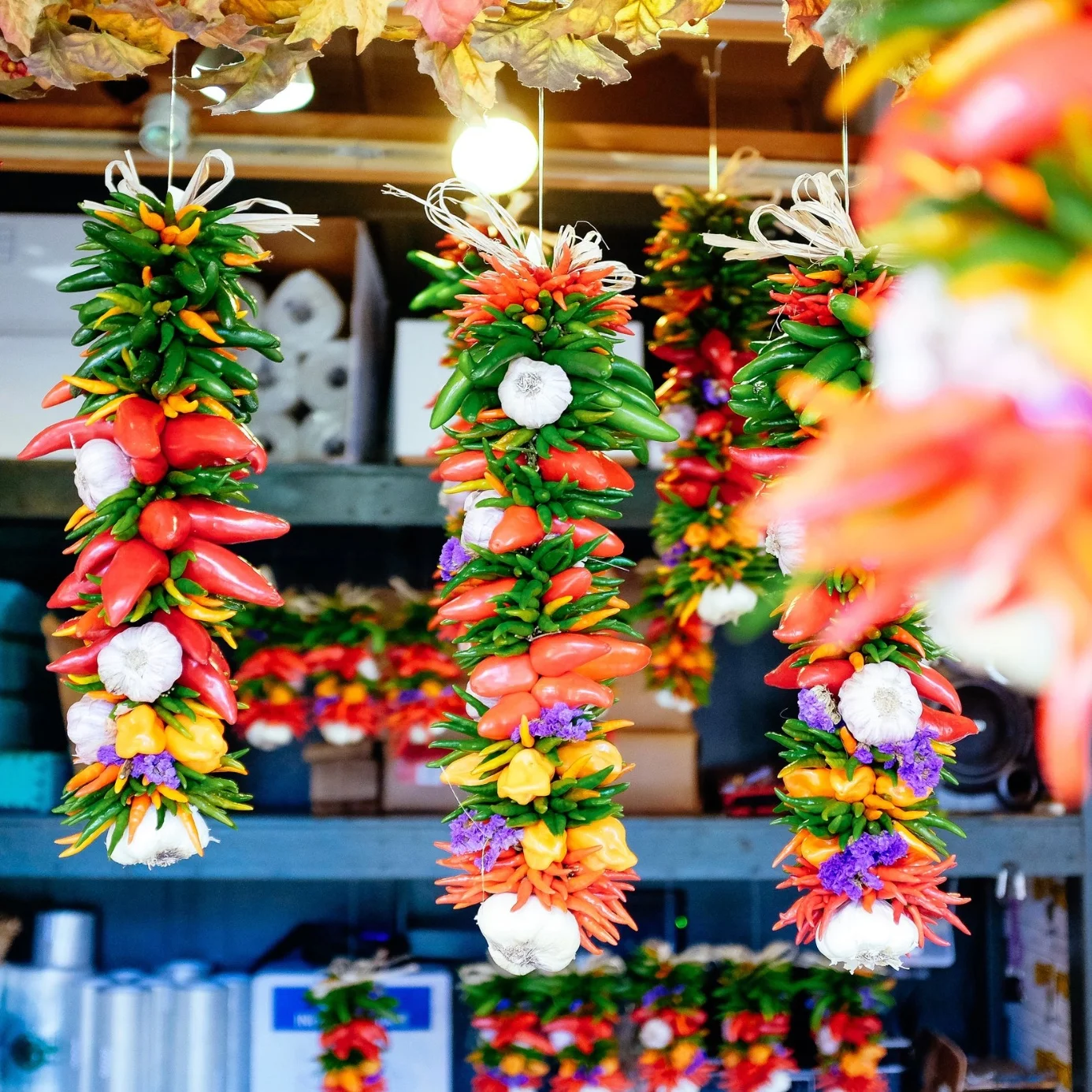The Recipes That Brought Us Together: Plant-based Edition
If I had to find the silver lining in my unexpected living situation this year, it would be gathering around the table with my parents every night. It’s comforting to know that no matter how the day has gone, when the clock strikes 8, everyone in my family performs the choreography we know quite well: I yell “Dinner?” from my room, my dad responds affirmatively from his room, and my mom begins to roll out rotis on the kitchen counter. Once we’re all at the table, we immerse ourselves in the moment. Eating good food is one of the few interests all three of us share. Inevitably, we often end up having passionate discussions about dishes we want to try, our favorite spices, and the regional differences in Indian cuisine. Whether we’re eating something exciting or not, I look forward to this small comfort every day.
Given how much I cherished these dinners, I was a little nervous about transitioning to a plant-based lifestyle. No more mutton biryani? Matar paneer? Ghee on my crisp rotis? I wasn’t so much concerned that I wouldn’t be eating these foods, but that I wouldn’t be sharing them with my family, as part of the joy of eating together is being able to comment on the food we’re sharing. Fortunately, this concern of mine hasn’t been an issue and has instead opened all of us up to exploring our ingredients. While there are some dishes we don’t share together, there are still plenty of delicious options for everyone—which is one of the joys of plant-based food.
Food provides a major avenue to maintain and express culture, and it is undeniable that meat-centered dishes are a significant part of several cultural cuisines. However, there are numerous ways to express pride for your culture through foods that are compatible with a plant-based lifestyle. Culture can be maintained through the spices you add, the kitchen stories passed down to you, and the techniques you use to prepare the dish.
For instance, one of the dishes I knew I would miss most as I transitioned to plant-based eating was palak paneer—soft cottage cheese cubes in a creamy spinach gravy. As my mom and I worked on making a plant-based version, I realized my favorite part about palak paneer was the flavor of the spinach gravy, so I simply replicated it with tofu!
I don’t strike gold with every plant-based substitute, but there is an element of excitement that comes with experimenting to find what I like. In the process, I’ve learned more about cooking with Indian spices and techniques than I ever knew before.
Personally, I’ve been aware of the idea that food from any culture can be vegan. I grew up eating plenty of my mom’s dal (lentils) and rice, so when I first heard about veganism, I connected it to my own plate. However, at the time, the media hadn’t done a good job of recognizing the diversity in plant-based cuisines, so there were definitely stereotypes about what veganism entailed.
Veganism has been characterized by Western food trends—think kale caesar salads and smoothie bowls. [1] While salads may be delightful, this image of plant-based eating is limiting, as it does not take into account the hundreds of cultures that have incorporated plant-based meals in their diets for years. It portrays veganism as a Western health food trend for people who exclusively eat basic foods, rather than a sociocultural movement that has the ability to transcend borders. As a result, many may feel deterred from plant-based eating because they do not see how the foods and flavors they enjoy fit into it.
Today, plant-based eating is gaining popularity as a way for people to express their beliefs about ethics, the environment, or wellness. Whether you’re interested in making a permanent switch to veganism or simply incorporating more meatless Mondays in your life, there are ways to tie your family’s cultural background into your meals and build community when you share food with others. It may seem daunting at first, but hopefully these recipes and perspectives from food bloggers Lisa Kitahara and Murielle Banackissa can inspire you!
Profile: Lisa Kitahara
Lisa is the voice, photographer and recipe developer behind Okonomi Kitchen, a plant-based food blog sharing simple feel-good recipes. She specializes in mostly East Asian-Inspired recipes but also loves to share western comfort classics (with lots of gluten-free options!). She hopes to share that transitioning into a plant based or vegan lifestyle doesn’t mean you have to give up your favourite food from your culture, it just takes a little time and love in the kitchen.
Why did you go vegan? How did going vegan affect both the cultural dishes you enjoy and how you share that food with other people?
I first went vegan when I was 16. It literally happened overnight after watching Earthlings. When I was younger, I didn’t eat that much meat anyways; my mom was Japanese, so we ate more fish. Fish was comfort food to me, especially because of the flavors my mom prepared it with. Even when you go to Japan, everything is cooked in fish broth. So giving that up was pretty hard at first. I couldn’t use dashi (fish-based) anymore and Japanese baking heavily relies on eggs. So when I first went vegan, I was mostly making easy, classic American comfort food. It was the first time I was cooking for myself, so that was a huge stepping stone on its own. But after a lot of trial and error, I learned how to make dashi vegan, and after that, it wasn’t as hard. As for how it affected other people...funny story: I hid that I was vegan from my parents for about 3 years.
How did you manage to hide that you were vegan for so long?
By the time I was in grade 11 or 12, my family didn’t eat together often because of everyone’s separate schedules. Whenever my mom brought me dinner I would put the meat back in the pot and since I was one of the first people to eat, she didn’t really notice. If I had the opportunity to go back in time, I definitely would have told them. When I eventually told my parents, they were against it, but I was in university and they knew they couldn’t change what I wanted to do. So I totally understand when people say they can’t go vegan because their family won’t let it happen. Meat and fish are a big part of Asian culture, so saying that you’re not going to eat meat may result in concerns about whether you’re getting enough protein. If your lifestyle is going to cause major arguments, slowly introducing veganism to your family through good vegan food is a good first step.
What do your parents think about your vegan lifestyle now?
My dad doesn’t care as long as I’m staying healthy. In the beginning, my mom would be critical about my food, especially because I was really into vegan and gluten-free baking and wasn’t great at it. For someone who is used to fluffy and delicate Japanese desserts, the vegan gluten free desserts are completely different. But now, my mom has tried my dishes and she really likes them! She’ll even send me a picture of a meal she sees on TV and tell me to make it vegan. Or she reminds me of something my grandma made and works with me to make it vegan. Sometimes when I’m preparing a recipe, I’ll call her and she walks me through it over the phone.
What inspired you to start your online platform?
I was the only vegan person in my town, which got lonely. I wanted to connect with other like-minded people, so I just made a new Instagram account to share my vegan food. Honestly, it was just for fun. I mostly posted smoothie bowls and comfort classics like pasta at the beginning. Eventually I started meeting other vegans!
So I remember you used to have another account (now @bylisakitahara), but then you switched to your current account (@okonomikitchen) because you wanted to share more cultural recipes. Could you talk more about what led to that switch?
When I was in university, I didn’t cook a lot of Japanese or Chinese food. I always knew Japanese cuisine was my favorite, but I was so wrapped up in what other people were sharing and posting that I felt obligated to share similar recipes. But once I came home from university and realized how much I missed my mom’s Japanese food, I knew people had to try this. I also started seeing more Asian people and food come up on my feed. And I noticed that whenever I shared Asian food in my stories but didn’t share a recipe, people would DM me asking how I made that. I mostly experimented with Japanese food, but with all the hate Chinese people were receiving because of COVID last year, that’s when my interest for Chinese food came out more. I started to reconnect with my grandma and asked her about Chinese recipes.
On my previous Instagram account, I realized people could be confused by what I was sharing, because I shared vegan and gluten free baking and American comfort food, but then all of a sudden I’d drop an Asian recipe. That’s totally fine, but I wanted a platform focused solely on Asian-inspired recipes so people knew what they were coming for. Right now my heart is in Asian-inspired recipes so people know that just because you go vegan, you can still enjoy the foods you grew up eating.
Have you ever felt like there was a stereotype for veganism? Did that stereotype ever affect what you chose to eat or share?
Oh yeah, 100%. When people at my university found out I was vegan, they often responded with “How are you vegan? You’re Asian.” I was shocked whenever anyone said that. I didn’t know you had to be a particular race to be vegan. The stereotype is that veganism is for white people and hippies. In the past couple years that has definitely improved, but it still exists, which is really interesting to me because a lot of vegan dishes come from Asian culture. Tofu is the perfect example.
What is your favorite cultural dish to veganize?
I’ll choose one Japanese and one Chinese. I think Japanese has to be either Japanese curry or karaage (vegan fried chicken). The curry wasn’t the hardest thing to veganize, but it was the best. For Chinese, it has to be the chao siu bao.
What advice would you give to someone who is interested in eating more plant-based but is afraid of losing the foods they grew up on or the sense of culture and community that comes from those foods?
First, don’t be afraid. If you think you’re never going to eat what you ate growing up, that isn’t a good mindset to start with. if you truly feel like you are missing out on cultural dishes, then experiment! After multiple rounds of getting used to the ingredients, you naturally become better at cooking. If you really want to give veganism a chance, don’t give up after just one round of eating something gross. Give it at least a month. Today, it’s so much easier to go vegan because of all the amazing products coming out and continuing to improve.
Profile: Murielle Banackissa
Murielle Banackissa is a food photographer, recipe developer and educator based in Canada. Through her various platforms she aims to make food photography accessible to everyone while also trying to democratize veganism!
You talk a lot about photography on your platform and part of photography is telling a story! How do you go about planning a shoot for a cultural dish that is particularly special to you?
When I shoot a recipe that is close to my heart or one that I grew up with, I always think of the emotions that dish evokes for me first. I think about how the dish made me feel and try to remember any memories associated with it. Let's say I am shooting a frozen dessert I used to have as a kid growing up in Africa: memories of sunny warm days will come to mind. This will influence the aesthetic I choose for my shoot. I will incorporate a warmer light, use tropical fruits as props and maybe incorporate some of my Congolese patterned fabrics to convey those childhood memories.
Why did you go vegan? How did going vegan affect both the cultural dishes you enjoy and how you share that food with other people?
I went vegan after watching Earthlings, a movie about industrial farming and the horrors that happen to animals behind closed doors. I realized I could no longer support a system that was so violent towards sentient beings. Going vegan definitely made it harder for me to eat childhood classics, but as a recipe developer, it also gave me a wonderful opportunity to recreate some of my favorite childhood foods and make them vegan.
Have you ever felt like there was a stereotype for veganism? Did that stereotype ever affect what you chose to eat or share?
Absolutely! That stereotype for me was a smoothie bowl lover, living in California who ate jumbo salads every day! Trust me, I tried that and it left me hungry so at some point, I just decided to turn away from that stereotype. I sought out other creators of color (which was sometimes much harder to find, especially a few years ago!) who were vegan and that helped me with redefining veganism. The vegan stereotype did affect the type of food I shared on social media for sure. Although my food is not super culturally rooted, I did question if there would be a market in the vegan community for recipes that were not as veggie forward as other creators or that did not contain tons of superfoods. However, with time, I realized that there is a place for everyone and as long as I stayed true to my vision, I would connect with likeminded people.
Who did you learn to cook from? What inspires your current creations?
My mom and the internet! My mom is an incredible cook. She is very intuitive, cooks with tons of spices and is not afraid to try new things and that has definitely inspired me in the type of dishes I create. The internet, especially as I became a vegan, because no one in my family or my circle was vegan. The internet taught me how to replace eggs in different recipes, which ingredients were vegan and which were not. It also taught me that veganism does not mean lack of flavour and that even people who are omnivores could be convinced of that with a very good chocolate chip cookie ;)
What is your favorite cultural dish to veganize?
My vegan Napoleon. It is made of layers of vegan puff pastry and a silky rich vanilla cream and it is one of those childhood delicacies that I am so happy I veganized because it is truly a crowd pleaser and my go to for any special occasion.
What inspired you to start your platform? What message do you want to send to your audience?
I started on Instagram at first without any real plan for it. I never thought my account would grow as much as it did and that one day I would be part of such a wonderful community of like minded people. With time though, as my business as a photographer grew and so did my platform on Instagram, my purposes became a little clearer. With my platforms, I want to (1) help people realize that food photography is accessible to anyone; (2) share my knowledge about food photography with aspiring food photographers and content creators; and (3) help change the image of veganism. I want people to realize that vegan food does not have to look a certain way! Vegan food can be as beautiful, as appealing, as sophisticated as non-vegan food without any animals being hurt and while being absolutely delicious!
Reference
“The White Vegan Myth: The role of global culture in creating plant-based eating.” joro.tech. (2020).

